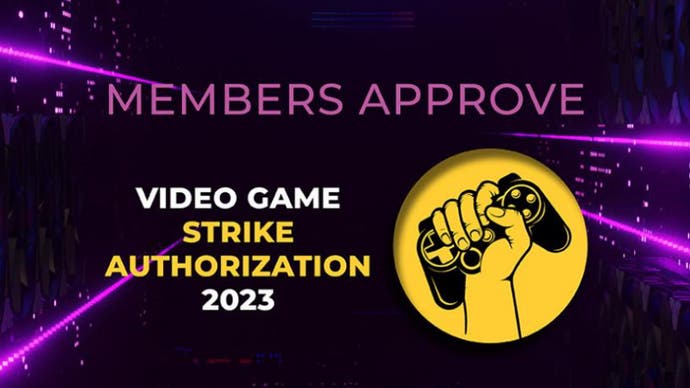SAG-AFTRA members overwhelmingly vote in favour of authorising video game strike
UPDATE: No deal in latest round of negotiations.
UPDATE 29/09/23: Acting union SAG-AFTRA and the video game producers negotiating a successor to the Interactive Media Agreement have failed to reach a consensus.
As we reported below, the union voted overwhelmingly in favour of authorising a potential video game strike, with the hopes this would compel movement for negotiations this week. However, no deal was reached.
"SAG-AFTRA and video game employers concluded scheduled negotiations for the Interactive Media Agreement," reads a statement from both parties shared with Eurogamer. "No deal was reached and the current agreement will remain in effect while the parties make final efforts to reach a deal."
It's unclear when further negotiations will take place, though strike action now seems more likely.
ORIGINAL STORY 26/09/2023: Members of the major SAG-AFTRA acting union have overwhelmingly voted in favour of authorising a potential video game strike.
Ballots were cast by 34,687 members, with 98.32 percent in favour of strike authorisation on the Interactive Media Agreement that covers union members' work on video games.
While this does not guarantee the union will call a strike, the next bargaining session is this week, and this ratchets up the pressure. The leverage of this authorisation could compel movement on either side.
SAG-AFTRA members have been striking since July this year, with both actors and writers walking out due to disputes in the film and television industries. This has now been extended to video games.
Since October 2022, the union has been in Interactive Media Agreement negotiations with a number of video game companies including Activision, EA, Insomniac, Epic Games, Take 2 Productions, Warner Bros and more.
However, the union argues these companies have refused to offer acceptable terms on issues critical to its members, such as wages in-line with inflation, protections around exploitative uses of AI, and basic safety precautions.
"It's time for the video game companies to stop playing games and get serious about reaching an agreement on this contract," said SAG-AFTRA president Fran Drescher.
"The result of this vote shows our membership understands the existential nature of these negotiations, and that the time is now for these companies - which are making billions of dollars and paying their CEOs lavishly - to give our performers an agreement that keeps performing in video games as a viable career."
The union's national executive director and chief negotiator Duncan Crabtree-Ireland added: "I remain hopeful that we will be able to reach an agreement that meets members' needs, but our members are done being exploited, and if these corporations aren't willing to offer a fair deal, our next stop will be the picket lines."
Chief contracts officer Ray Rodriguez also commented: "Between the exploitative uses of AI and lagging wages, those who work in video games are facing many of the same issues as those who work in film and television.
"This strike authorization makes an emphatic statement that we must reach an agreement that will fairly compensate these talented performers, provide common-sense safety measures, and allow them to work with dignity. Our members' livelihoods depend on it."
The success of video games - plus advancements in performance capture technology - has provided increased opportunities for actors in the industry, but this has led to high profile issues.
Last year, Bayonetta voice actress Hellena Taylor asked fans to boycott the third game following an "insulting" salary offer.
While later reports disputed Taylor's claims, the fiasco certainly highlighted the wider issue of fair pay for voice actors.
More recently, the use of AI has become a contentious topic for voice actors. Many are sceptical about the use of AI, particularly arguing against voice cloning used by modders to replicate their work.
UK actors union Equity is working with actors to battle the rise of AI-driven deepfake mods and has released a new toolkit for performers to use to protect their rights. It's also called for urgent government action for support.


